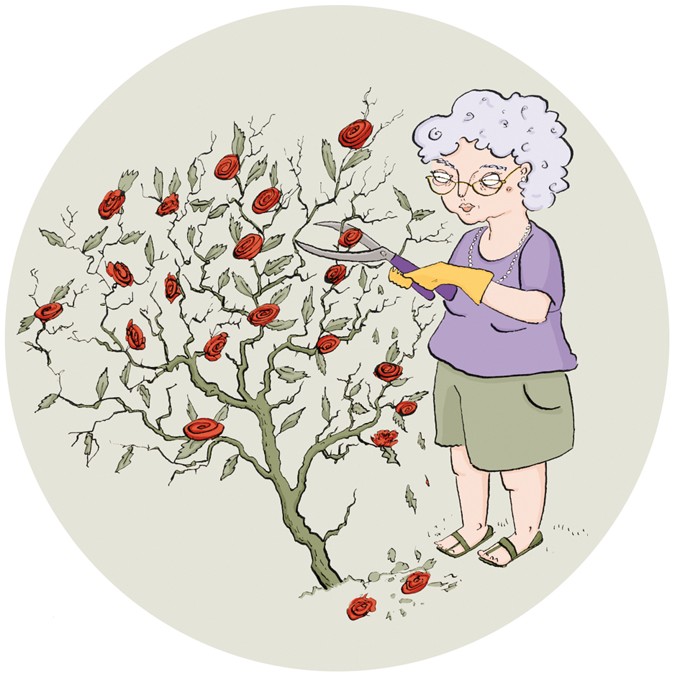Pruning: a class I act | Nature Reviews Neuroscience
Pruning: a class I act | Nature Reviews Neuroscience"
- Select a language for the TTS:
- UK English Female
- UK English Male
- US English Female
- US English Male
- Australian Female
- Australian Male
- Language selected: (auto detect) - EN
Play all audios:
Access through your institution Buy or subscribe The authors used mice lacking the MHC class I molecules H2-Kb and H2-Db (_K__b__D__b−/−_ mice), the expression of which is known to be
regulated by retinal waves. Data from whole-cell recordings in LGN slices indicated that _K__b__D__b−/−_ LGN neurons received input from more RGC axons than did wild-type LGN neurons.
Moreover, the segregation of RGC axons into eye-specific LGN layers was impaired in _K__b__D__b−/−_ mice. Wild-type and _K__b__D__b−/−_ retinas showed similar retinal-wave activity,
suggesting that H2-Kb and/or H2-Db act downstream of neuronal activity to regulate synapse pruning and eye-specific segregation. > the effects of the absence of these molecules at
retino-geniculate > synapses are not due to compromised immune function This is a preview of subscription content, access via your institution ACCESS OPTIONS Access through your
institution Subscribe to this journal Receive 12 print issues and online access $189.00 per year only $15.75 per issue Learn more Buy this article * Purchase on SpringerLink * Instant access
to full article PDF Buy now Prices may be subject to local taxes which are calculated during checkout ADDITIONAL ACCESS OPTIONS: * Log in * Learn about institutional subscriptions * Read
our FAQs * Contact customer support REFERENCES * Lee, H. et al. Synapse elimination and learning rules co-regulated by MHC class I H2-Db. _Nature_ http://doi.org/10.1038/nature13154 (2014)
Article CAS PubMed PubMed Central Google Scholar Download references Authors * Leonie Welberg View author publications You can also search for this author inPubMed Google Scholar
RELATED LINKS RELATED LINKS RELATED LINKS IN NATURE RESEARCH Blankenship, A. G. & Feller, M. B. Mechanisms underlying spontaneous patterned activity in developing neural circuits.
_Nature Rev. Neurosci._ 11, 18–29 (2010) RIGHTS AND PERMISSIONS Reprints and permissions ABOUT THIS ARTICLE CITE THIS ARTICLE Welberg, L. Pruning: a class I act. _Nat Rev Neurosci_ 15,
280–281 (2014). https://doi.org/10.1038/nrn3732 Download citation * Published: 09 April 2014 * Issue Date: May 2014 * DOI: https://doi.org/10.1038/nrn3732 SHARE THIS ARTICLE Anyone you share
the following link with will be able to read this content: Get shareable link Sorry, a shareable link is not currently available for this article. Copy to clipboard Provided by the Springer
Nature SharedIt content-sharing initiative
Trending News
Edd and cynthia staton - marketwatchIntraday Data provided by FACTSET and subject to terms of use. Historical and current end-of-day data provided by FACTSE...
Something went wrong, sorry. :(一个马来西亚公司宣布,将以74亿1000万令吉把马来西亚城发展计划的60%股份卖给依斯干达海滨控股和中铁工程合组财团,藉脱售公司资产,减少约404亿令吉的债务,摆脱了危机。马国首相纳吉表示已兑现一马在6个月内完成重组计划的承诺。(吉隆坡综合...
International ice hockey's biggest upsetsGERMANY SHOCK CANADA, 2018 The 2018 Olympic tournament was the first in years not to feature NHL players. Still the trad...
Something went wrong, sorry. :(TechCrunch Desktop LogoTechCrunch Mobile LogoLatestStartupsVentureAppleSecurityAIAppsEventsPodcastsNewslettersSearchSubm...
X-Ray Optics | NatureABSTRACT Although optical reflexion and refraction of X-rays have been known for more than twenty years, they have so fa...
Latests News
Pruning: a class I act | Nature Reviews NeuroscienceAccess through your institution Buy or subscribe The authors used mice lacking the MHC class I molecules H2-Kb and H2-Db...
Catalogue of scientific papersABSTRACT THE Royal Society is to be congratulated on the publication of the fifteenth volume of its Catalogue of Scienti...
'new' sexually transmitted infection 'mg' may be widespread | nursing times“A sexually transmitted infection could have infected hundreds of thousands of people in the UK,” The Guardian reports. ...
Societies and Academies | NatureAccess through your institution Buy or subscribe This is a preview of subscription content, access via your institution ...
Special issue: self-assembled structures and materials for accessing new functionsThe self-assembly of (macro)molecules using various methods (bulk, solution, surface and so on) is a powerful tool for p...
